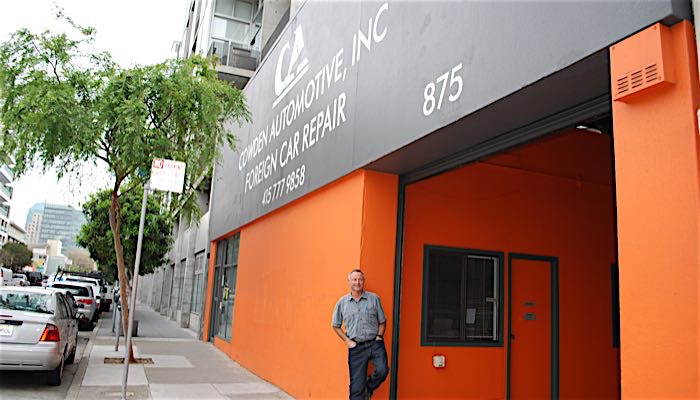By Bob Cooper
When it comes to dealing with objections, most shop owners shut down as soon as the customer says, "It’s too much money" or "I’d like to think it over." There are a number of reasons why, but the single most common reason is that shop owners don’t know how to handle the objections.

Here are what I’ve discovered to be the best-kept secrets when it comes to dealing with sales objections.
1. Accept the fact that the single greatest cause of sales objections is a poor sales presentation. If you don’t follow the eight steps of the sales cycle (1. Build rapport; 2. Fact-find; 3. Identify the need; 4. Identify the solutions; 5. Build interest and value; 6. Ask for the sale; 7. Close the sale; 8. Resell the service), if you rush through your presentation, or if you don’t believe in the service you’re recommending, then sales objections are bound to occur. So, the first place to start in handling objections is in mastering your presentation. In all cases, make sure that you build rapport with the customer, offer options whenever possible, build interest and value in the benefits of your service rather than the parts and labor, and give the prices last.
2. When you hear an objection, it’s a cardinal rule that you need to listen, learn and be thankful. When a customer gives you any kind of sales objection, they’re telling you that they’re interested, but there is something that is standing in the way of them authorizing the service. As sales professionals, we need to be thankful that they are expressing their concern rather than just leaving. First and foremost, when a customer voices a concern, you should never interrupt them. The more they talk, the more comfortable they will feel with you, and the more you will learn about the questions and concerns they have. You should also make a point to never disagree, because all that will do is alienate the customer by proving them wrong. You may win the battle of words, but you’ll lose the sale. Instead, you should say something like, “Well Mr. Jones, based on what you’ve just told me, I can see why you would feel that way. Let me tell you what we’ve discovered…”
3. Follow the Elite-recommended five-step procedure for dealing with sales objections:
1. Hear the customer out.
2. Feed the objection back to the customer to assure you understand them: “So what you’re telling me Mr. Jones is that you feel you can get the same job done for less somewhere else, am I correct?”
3. Respond to the objection. This is where you answer their questions and resolve their concerns.
4. Confirm your response: “So does this all make sense now, Mr. Jones?” As soon as they agree, you should ask for the sale again.
5. Change the subject: “Now will you need a ride back to your office?”
4. Know when to quit. One of the most common questions we get at our Masters Course for service advisors is, “When do you quit when a customer continues to show interest?” My philosophy is pretty simple. If I sense that the customer is becoming frustrated in the least bit, I quit. If I sense that I’m becoming frustrated in the least bit, I quit, because I’d never want that frustration to show through to the customer. And, lastly, when I feel the customer fully understands everything that has been recommended, and why, when I have answered all of their concerns in a professional way, and they have still decided to pass on my recommendations, I quit.
5. Record yourself. One of the best tools you can use as a service advisor is a digital voice recorder, and one of the best habits that you can develop is recording your presentations and then reviewing them as soon as possible. When reviewing your voice recordings, pay close attention to your tonality, your listening skills, the delivery of your presentation and whether or not you followed the sales cycle. Just assure that you abide by any local, state and federal laws regarding the recording of others, regardless of whether the customer is at the counter or on the phone.
6. Lastly, bear in mind that service advisors are sales people, not clerks. It is the job of an advisor to help customers make difficult decisions that are in their best interest. If you never put money ahead of people, if you sell from your heart rather than based on the dollars and if you follow these recommendations, then a number of things will occur. Beyond just becoming a better service advisor, you’ll be able to easily handle those sales objections, and, most importantly, you will be helping a lot of people at the same time.
For the last 20 years, Bob Cooper has been the president of Elite Worldwide, Inc. (www.EliteWorldwideStore.com), offering shop owners sales, marketing and employee management audio training courses available for instant download. The company also offers coaching and service advisor training services. You can contact Bob at [email protected], or by calling 800-204-3548.

